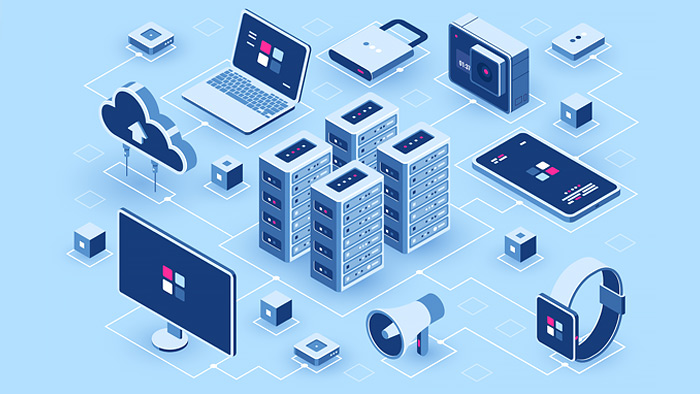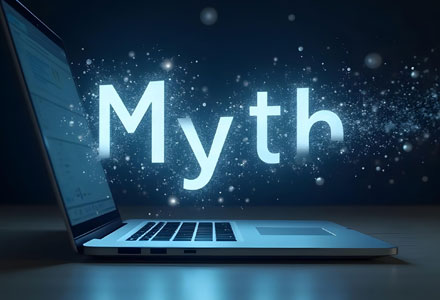To the dismay of loyal Windows 7 fans, as of January 14, 2020, Microsoft will no longer offer support to users of the operating system[1].
Microsoft has been trying to promote the move over to Windows 10 since its release in 2015, but despite offering a free upgrade up until July 2016, there are still many people who have not been successfully converted from Windows 7. Security updates for computers still running Windows 7 will stop, making devices vulnerable to attack.
Transitioning to a new system can often feel like a nuisance as many people feel they have to completely relearn how to use their machines, and consequently, the upgrade is met with reluctance. Nevertheless, it is crucial that everyone upgrades to Windows 10 in order to ensure the safety of their device.

The support status of Windows 7
Microsoft concluded its mainstream support for Windows 7 on January 13, 2015, and entered into extended support, resulting in a reduction in the support offered. Generally, the extended support period lasts five years following the end of mainstream support. During this period Microsoft does not release new features or develop new support procedures for the operating system, but they do offer patches and will fix bugs.
Essentially, the extended support period ensures that your system has the bare minimum of protection from security threats, which is enough to safely maintain the operating system in a manner that keeps your PC safe[2]. Unfortunately, when the extended support phase is over, your PC will be vulnerable to malicious spyware, hacking and viruses.[3]

The benefits of Windows 10
As the expiry date for Windows 7 support looms, it is critical that businesses still using the operating system remember to upgrade to Windows 10 by next January, not only to ensure that their computers are well protected but also to embrace the features that make Windows 10 highly valuable to businesses.
For instance, Windows Autopilot allows users to set up system configurations so that existing work and features can be automatically downloaded from the cloud onto a business's Windows 10 computers. This is a huge time saver that simplifies the setup process of company computers, allowing employees to work with a system catered to their job role. Autopilot can also help to ensure that all employee laptops have the same settings. These settings could be determined by management and then shared across a business[4].
Don't believe the myth
Legend has it that Windows 7 is more secure than Windows 10, but that argument falls flat when you consider such Windows 10 features as BitLocker, Device Guard, UEFI secure boot, and Windows Hello, which all make the operating system a highly efficient force to be reckoned with, and even if the end of Windows 7 support was not approaching, in terms of security Windows 10 would still be far superior. With UEFI, Windows 10 computers start up far faster than the older BIOS program previously used by Microsoft, and the secure boot mode that comes with UEFI provides a safer experience for the user [5].

Windows 7 will be 10 years old as of July this year and although this does not mean it should be dismissed as inefficient, the system has been stagnating in a phase of extended support since 2015 and inevitably users are missing out on various improvements that Windows 10 can offer. The most important difference between Windows 10 and Windows 7 is, of course, valuable Microsoft support and security that will be completely void for Windows 7 in 2020. Although the upgrade costs up to £80, this is very little if you consider the expense that would follow a security breach that could result in theft or corruption of files as well as viruses.
How we can help
At Blue Frontier, the efficiency and safety of our computers is of the utmost importance and is something we take very seriously, as PCs and laptops are at the core of the work we do. Whether it is in our design, development, digital marketing or technical support departments, we need access to secure computers throughout the working day to ensure that our content, work, and clients are protected.
Luckily, with our technically savvy team on-hand, we stay up to date on cybersecurity and changing operating systems. Not only do we work to optimise the efficiency and security of our own devices, but we are also able to help other companies in need of technical guidance when thinking about the move over to Windows 10.
If you want to understand more about the expiration of Windows 7 support and how to stay protected with Windows 10, give our technical team a call on 02382 354 320.
References
- Microsoft.com. (n.d.). Windows 7 End of Support. [online] Available at: https://www.microsoft.com/en-us/windowsforbusiness/end-of-windows-7-support [Accessed 9 Apr. 2019]. 2Harris, J. (2019). Explained: Windows support services. [online]
- BT.com. [Accessed 9 Apr. 2019].
- Lister, J. (2019). Windows 7 No Longer Safe to Use in 2020 - Here's Why. [online] www.infopackets.com. Available at: https://www.infopackets.com/news/10485/windows-7-no-longer-safe-use-2020-heres-why [Accessed 9 Apr. 2019].
- Docs.microsoft.com. (2019). Overview of Windows Autopilot. [online] Available at: https://docs.microsoft.com/en-us/windows/deployment/windows-autopilot/windows-autopilot [Accessed 9 Apr. 2019].
- Stieben, D. (2013). What Is UEFI And How Does It Keep You More Secure?. [online] MakeUseOf. Available at: https://www.makeuseof.com/tag/what-is-uefi-and-how-does-it-keep-you-more-secure/[Accessed 10 Apr. 2019].







